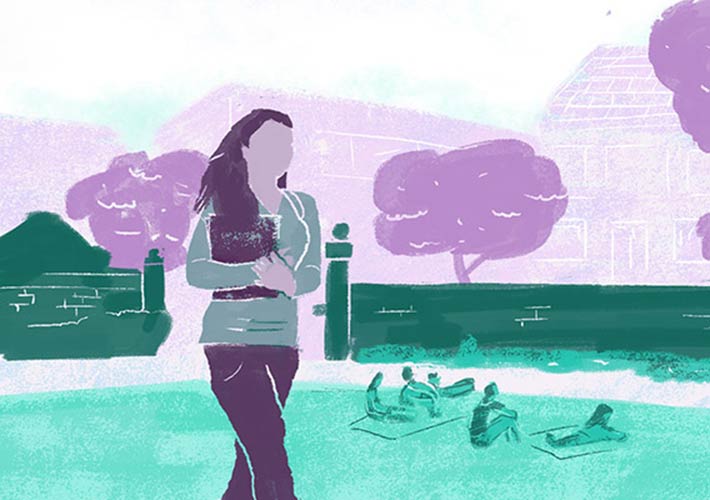Many people recognize the importance of wellness, but may not know how to get started. Traditionally, articles and information on wellness address interpersonal components and how they affect an individual. They tackle areas like mental, emotional, physical, and spiritual health. This series of blog posts takes on an intrapersonal focus.
Each arena of life—be it relationships, work, home, or school—poses unique challenges and opportunities for achieving personal wellness. This toolkit aims to help people reflect on wellness in their lives, and it provides actionable steps for building and maintaining healthy connections—without losing a personal sense of self and wellness.
Get started by reading Counseling@Northwestern faculty member Cori Costello’s post on the benefits of mindfulness. Then develop a personalized, concrete plan for your wellness by selecting the resource that relates to the arena you struggle with the most.
Considering a Career in Counseling?
No matter how little academic or professional counseling experience you have, you can make a difference as a mental health counselor through our Bridge to Counseling Program.

Mindfulness is a Buddhist concept that is described as waking up and “living in harmony with oneself and with the world.” It is a term that has been discussed with great frequency in various fields of study including well-being, mental wellness, and positive psychology. But how does one think or act in a mindful way? How is it that mindfulness can decrease depressive symptoms or increase wellness approaches?

Wellness in your community is about connection, purpose, and accountability. So often we go about our day feeling isolated and unconnected to people in our neighborhood or city, which can have an impact on our mental and physical health. If you’re feeling isolated or not invested in your community, then it’s time to evaluate how you can make space for wellness in local spaces and organizations.

Wellness in the family is about communication, personal responsibility, and creativity. Family stress can have a huge impact on our physical, mental, and emotional health, but with the right mindset, families can feel calmer and stronger. If you’re feeling overwhelmed with family drama, then it’s time to evaluate how you can make space for wellness with your loved ones.

Wellness in a romantic relationship is about autonomy, equality, and intention. A marriage or relationship with a significant other takes energy and time that sometimes can feel difficult to find. If you’re feeling tense or exhausted around your partner, then it’s time to evaluate how you can make space for wellness in your relationship.

Wellness in our creative life is about compassion, preparation, and community. So often people talk themselves out of pursuing interests and hobbies because they’re not talented enough, don’t have the time, or feel they have no community to support them. If you are feeling a lack of focus or confidence when it comes to your passions, then it might be time to evaluate how you can make space for wellness in your creative life.

Wellness in the workplace is all about purpose, energy, and relationships. Few people would say they have the perfect job, but those who are happy at work and are able to overcome challenges and stressors share a few traits. If you’re feeling burned out at work or see this as a possibility in the future, then it’s time to evaluate how you can make space for wellness in your career.

Wellness at school is all about adjusting attitudes, accessing resources, and recruiting mentors. School can often feel like the last place you have time to focus on your health, but succeeding academically doesn’t mean you have to feel overwhelmed and anxious or neglect your physical health. If you’re feeling exhausted or anxious at school, then it’s time to evaluate how you can make space for wellness at your college or university.

